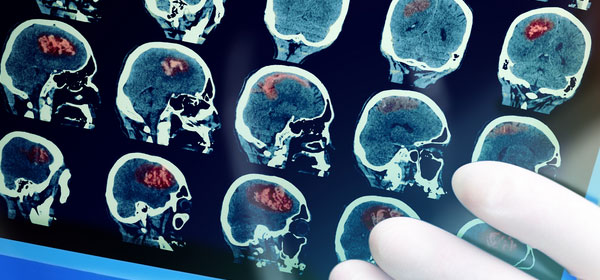While dementia is more prevalent in those over 65, it can develop in anyone from 40 years of age onwards, suggesting it’s wise not to put off taking a ‘mini mental test’ at the GPs.
So when is the right time to take this test for dementia? According to Alzheimer’s Australia, if you believe you are becoming forgetful or struggling to find the right word, it is worthwhile talking to your doctor. The mini mental test, otherwise known as a General Practitioner Assessment of Cognition, is an easy, four-minute quiz. You can find a sample of one at gpcog.com.au.
But being in denial about whether you may have this brain disease could be the very thing that compromises your independence and mobility earlier than you expect.
“Receiving a positive diagnosis as soon as possible gives you more time to plan for the future,” Alzheimer’s Australia (Vic) acting chief executive Leanne Wenig told YourLifeChoices.
Many people avoid discussing dementia with their doctor out of fear that they will be considered crazy or stupid if they score ‘poorly’. But the few questions you will be asked to answer are not a test of your IQ or your mental health. Instead, the process is designed to indicate whether there is sufficient cognitive impairment to warrant more medical testing for an accurate diagnosis and potential treatment.
Symptoms common to most forms of dementia are memory loss, confusion, personality change, apathy and an inability to perform everyday tasks. However, it is possible to have some of these symptoms and not have dementia, as they can also be evident in people with vitamin or hormone imbalances, depression or those who are over-medicated.
While there is as yet no cure for dementia, there are medicines that help ease the symptoms and slow down the disease’s progress so that you remain independent for as long as possible.
Dementia is not a single disease, but rather a general term for several neuro-degenerative conditions, including Alzheimer’s disease, Vascular dementia, Parkinson’s disease, Dementia with Lewy bodies, Fronto Temporal Lobar Degeneration and Huntington’s disease, among others. Early detection of these illnesses may help to ease the worst symptoms later. Although, inevitably, dementia is terminal.
Among conditions thought to increase the risk of dementia are heart disease, hypertension, high cholesterol and diabetes, according to Alzheimer’s Australia. If you have any of these ailments, it is even more pressing to discuss dementia screening with your GP.
Put your mind at ease and ask your doctor if it’s worthwhile having a mini mental test.
For more information, call the National Dementia Helpline on 1800 100 500.
Related articles:
How Alzheimer’s changes your body
Dementia: are men seeking help?
Eat to improve your memory

